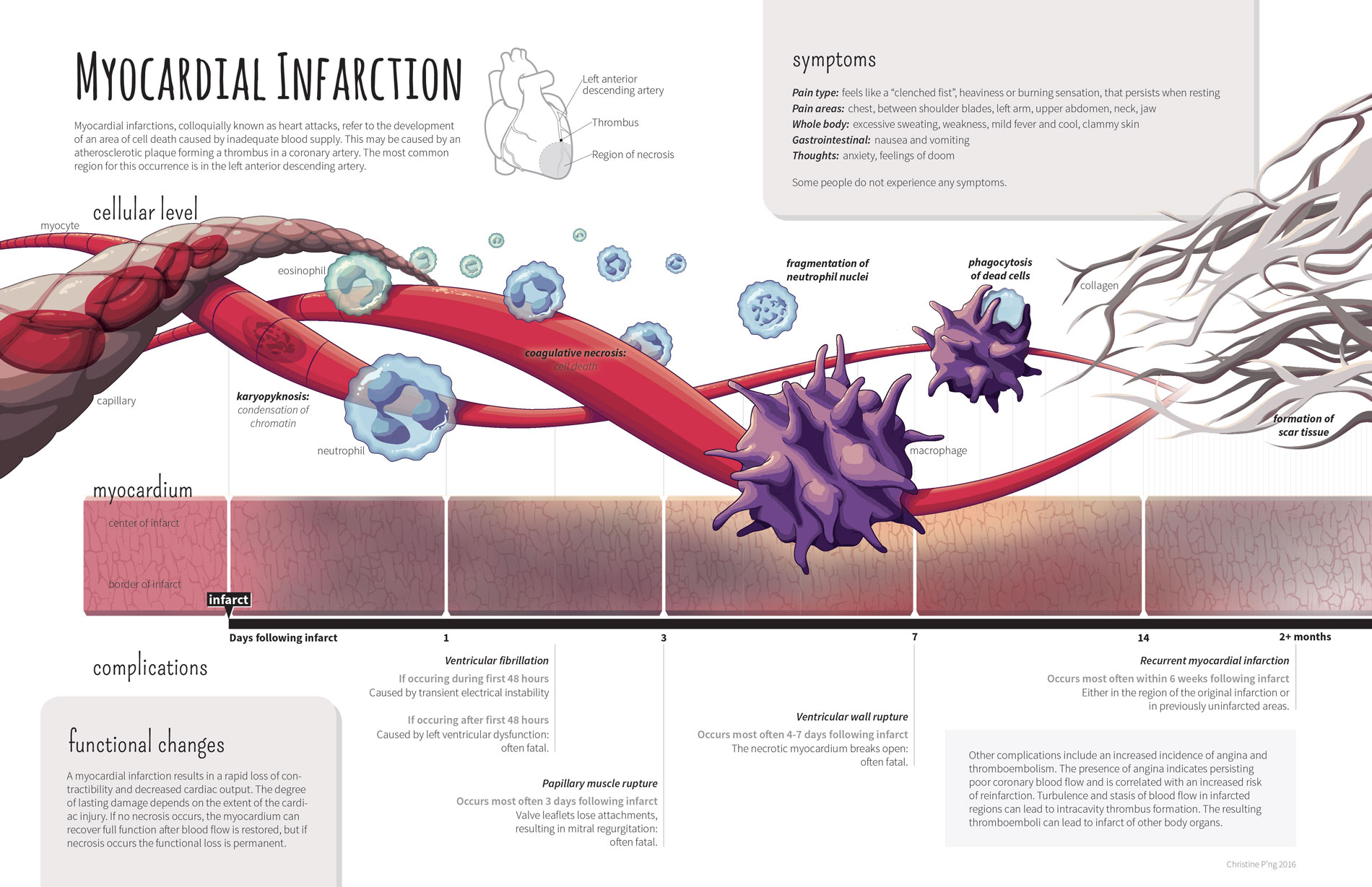Myocardial Infarction
A large part of my training as a biomedical communicator was in performing scientific research. Indeed, much of time spent on this project was in understanding the pathophysiology of this disease.
The goal was to communicate a clear disease progression along multiple levels of scale to an educated lay audience. I chose to focus on mycardial infarctions. This project was created under the guidance of Drs. Shelley Wall and John Wong, at the University of Toronto.
I researched the disease at both a gross and molecular scale. My initial drafts considered including thrombosis in the design, but this was removed later due to space constraints.
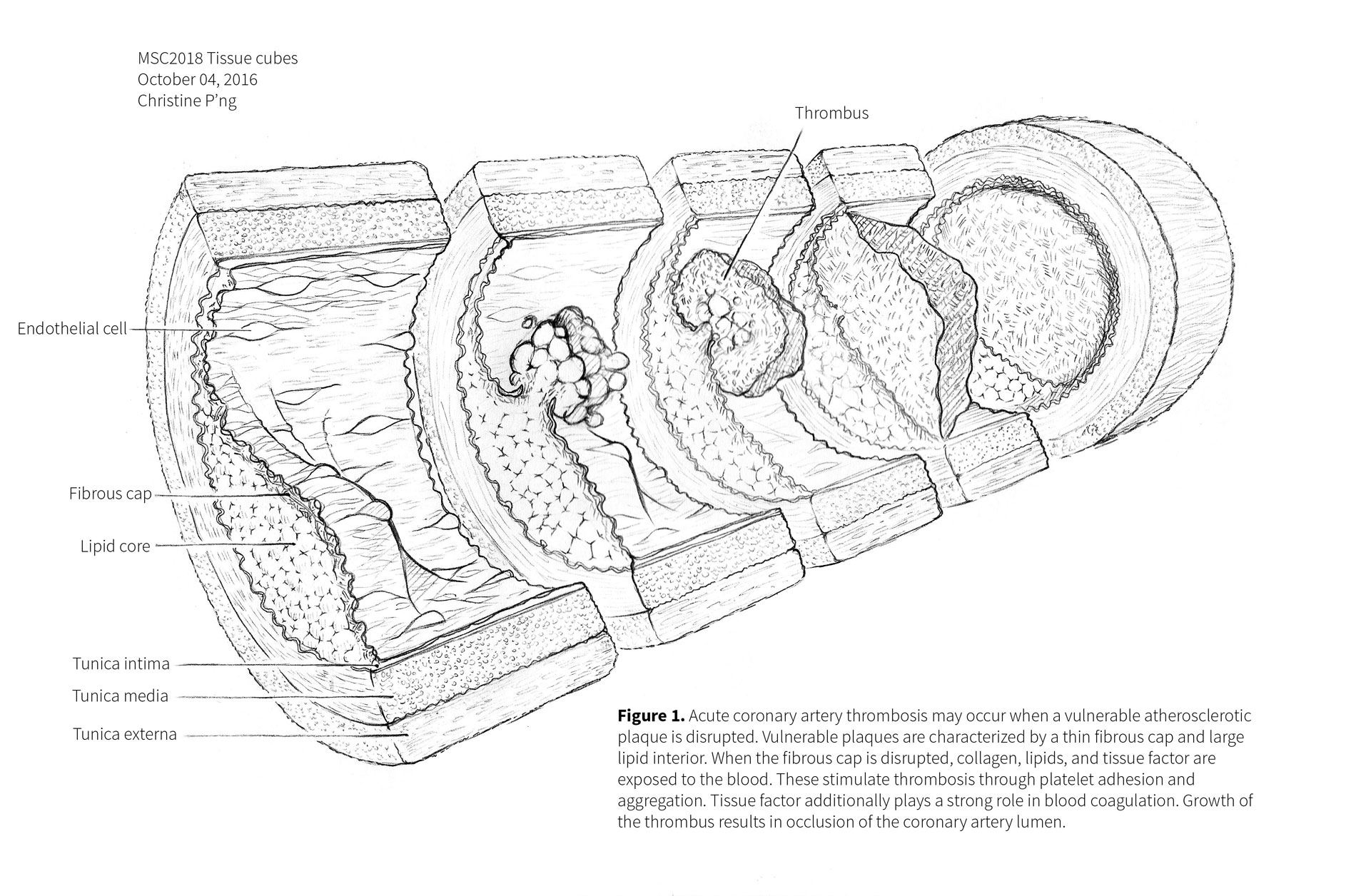
Creating a clear and engaging layout was another challenge. Myocardial infarctions have a very time-sensitive progression, and this required the layout to maintain an accurate time scale. While designing this, I imagined what kinds of questions a reader of this graphic would be asking. Because this pathology is relatively common, they may be particularly interested in how to identify a myocardial infarction, and key time points and complications to be wary of.
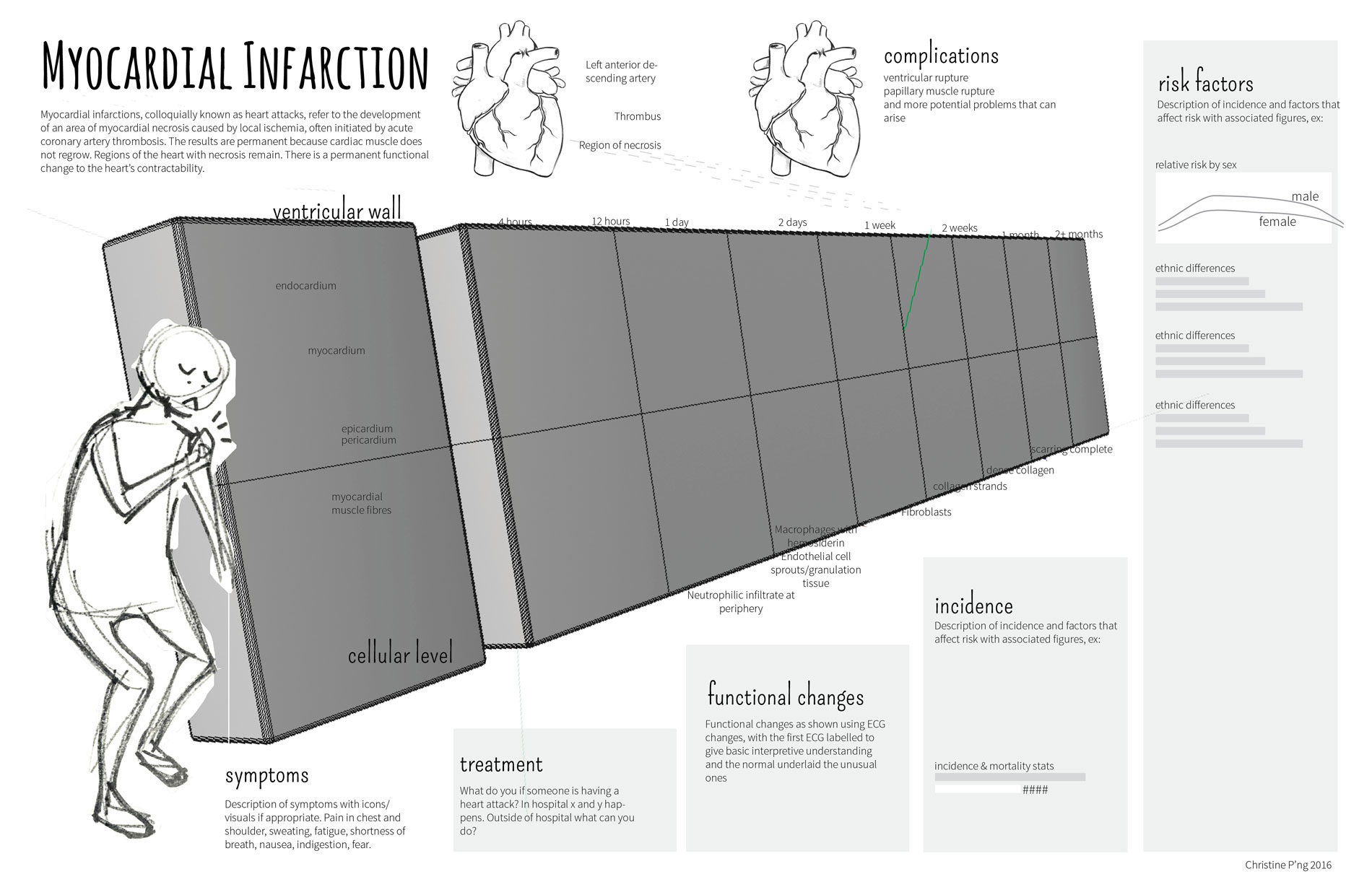
Colour was another important factor to consider. The major gross change is a colour change in the heart wall, and this constrained the colour palette of the project. In order to make the gross colour change more accurately identifiable, I kept the background white, to reduce the effect of surrounding colours for influencing colour perception.
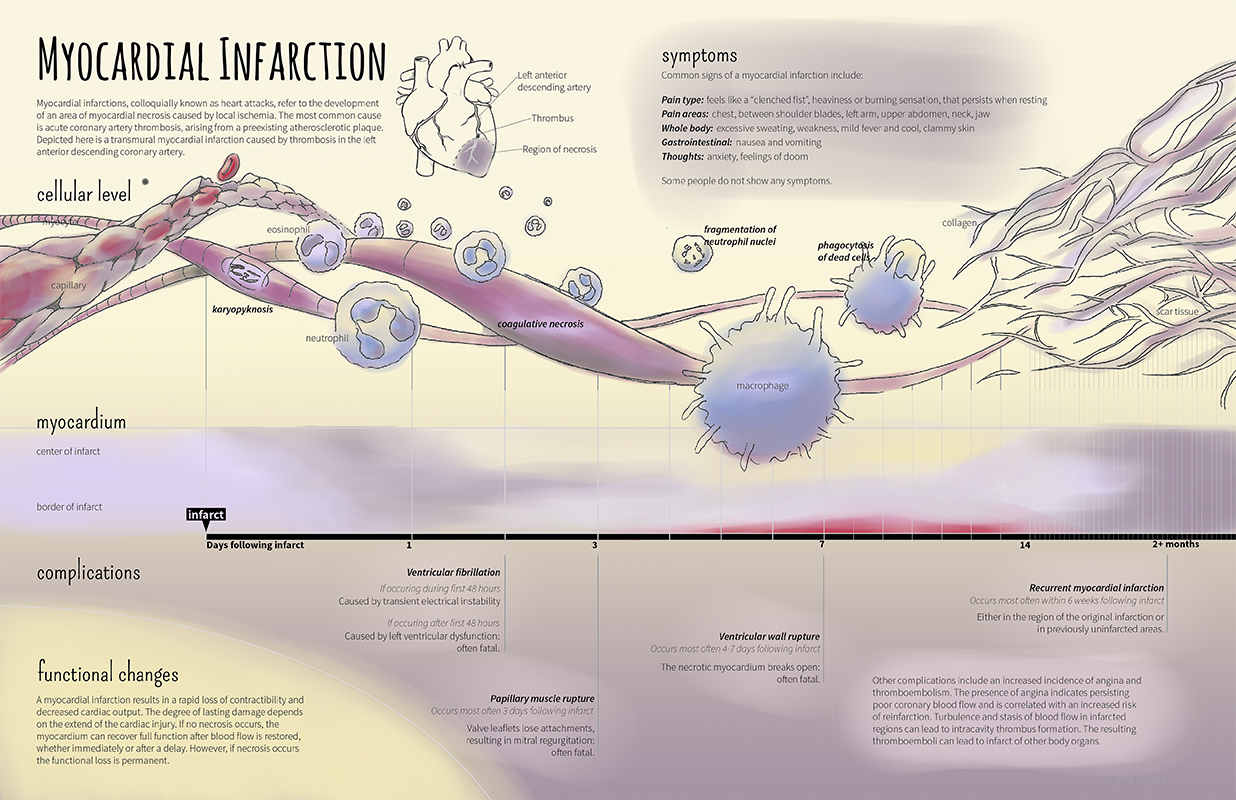
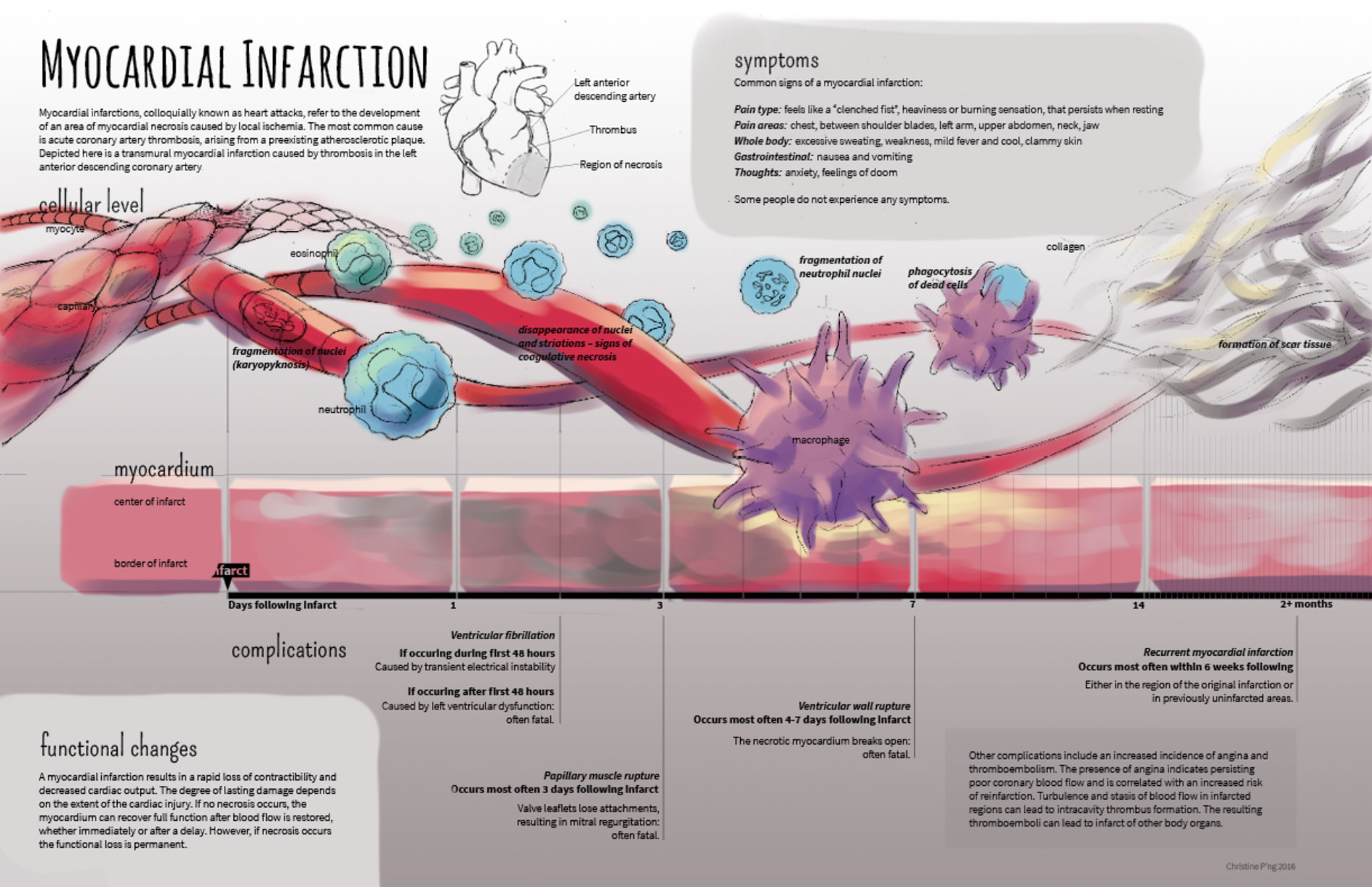
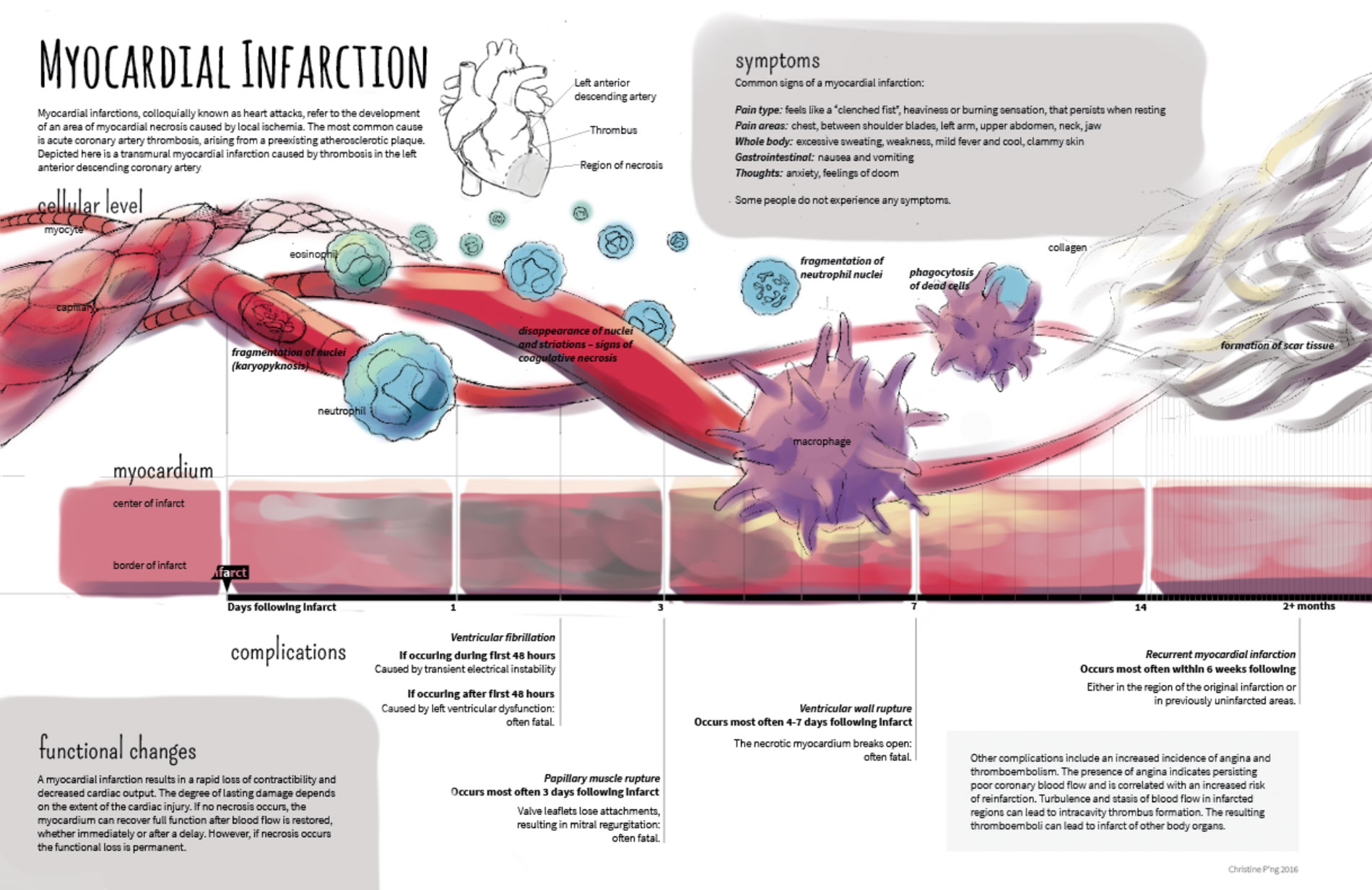
The final product was created using Adobe Photoshop and Illustrator, and designed for a 2-page spread.
